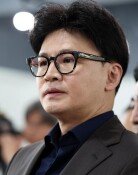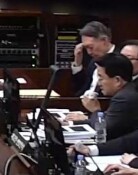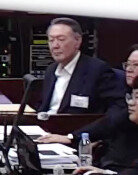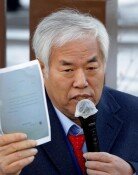The Crossroads between the Second Building of a Nation and a Deepening Division among the People
The Crossroads between the Second Building of a Nation and a Deepening Division among the People
Posted January. 28, 2005 22:43,
The Iraqi general elections, which will be the first litmus test of the spread of freedom which U.S. President George W. Bush declared, will be held on January 30.
It will be Iraqs first-ever democratic election after it has long suffered under authoritarianism since it gained independence from the U.K. in 1958.
In this regard, the election is also seen as the first step toward the second building of Iraq. However, others say that the election could be a seed for division among Iraqis where Shiites and Sunni Kurds could engage in battle for political hegemony.
The results of the election could also paint a new color on the political map of the Middle East. The major power in Iraq (Shiite), which the U.S. considers as another target of the spread of freedom, could be either encouraged or shrunk depending on the outcome of the election. Saudi Arabia, a major partner of the U.S. Middle East strategy, cannot help but agonize over whether to maintain a monarchy.
The Meaning and Task of the General Elections-
In the general elections, 275 members of the constitutional National Assembly will be elected to write a permanent constitution. The members of the constitutional National Assembly will elect a president, two vice presidents, and a prime minister who will be the actual man in power.
If Iraqi citizens concur on the permanent constitution in the form of a referendum, another general election will be held before December 15 to constitute a new parliament.
Therefore, a new political system that is completely different from the U.S. military administration or the interim government system will be launched in Iraq, starting with the upcoming general elections. A framework in which the Iraqi citizens decide their own future will be institutionalized.
The U.S. administration repeatedly stresses that the upcoming general elections are the actual first steps of the handover of sovereignty, which will also pave the way for the withdrawal of U.S. forces.
In an interview with the New York Times on January 27, President Bush said, Democratically elected Iraqi leaders will expect the U.S. to stay for the purpose of being a supporter, not an occupier. That means that the timing of the withdrawal of U.S. forces could be delayed, and the status of the forces would change.
The problem lies in the outcome of the election. If turnout is low or if the election itself is cancelled in some regions, President Bushs idea of promoting democracy through the spread of freedom would be hit hard. If that happens, the U.S. influence over outposts of tyranny would weaken.
Controversy over Separatism-
As the date of general elections is approaching, a heated debate on separatism has arisen. This signals that divisions after the election could be serious.
Ahmed Chalabi, the leader of the Iraqi National Congress (INC) and also a leader of the Shiites, argued on January 27 for the secession of the southern Shiite regions of Basra, Amara and Nasiriya, from the central government and for the declaration of autonomy of these regions. His argument is based on the fact that the three southern states are in a miserable economic condition despite the fact that they account for 90 percent of Iraqi oil exports. He went on to claim that 20 percent of the central governments finances should be allocated to these regions. His remark is interpreted as representing the sentiments of the United Iraqi Alliance (UIA), one of the powerful Shiite political parties.
The International Crisis Group (ICG), a think tank on resolutions of international disputes, warned on January 27 that the problem of Kurds in the northern oil fields of Kirkuk could not only pose a threat to Iraqs stabilization but could also lead to a civil war.
Young-Sik Kim spear@donga.com







